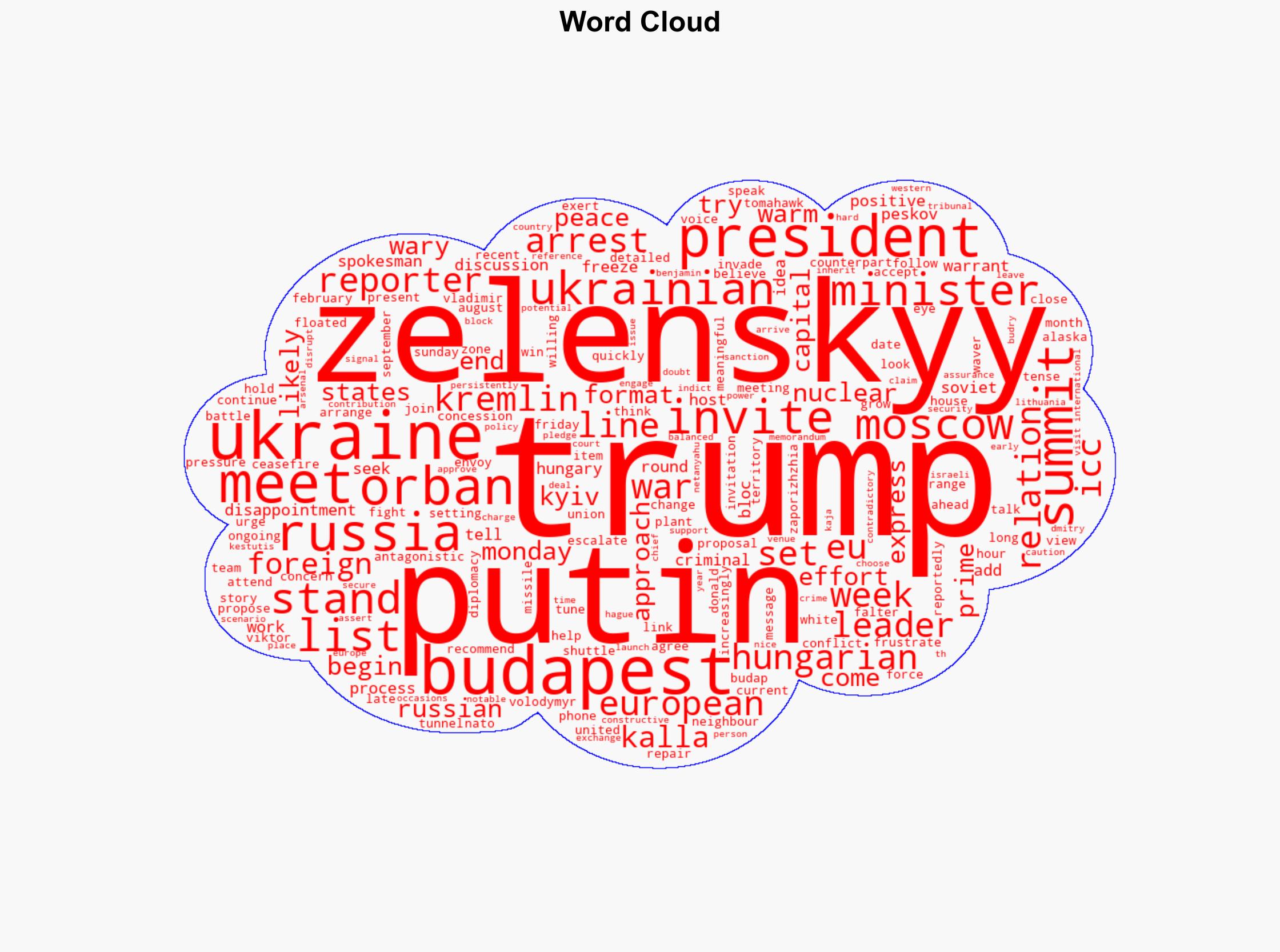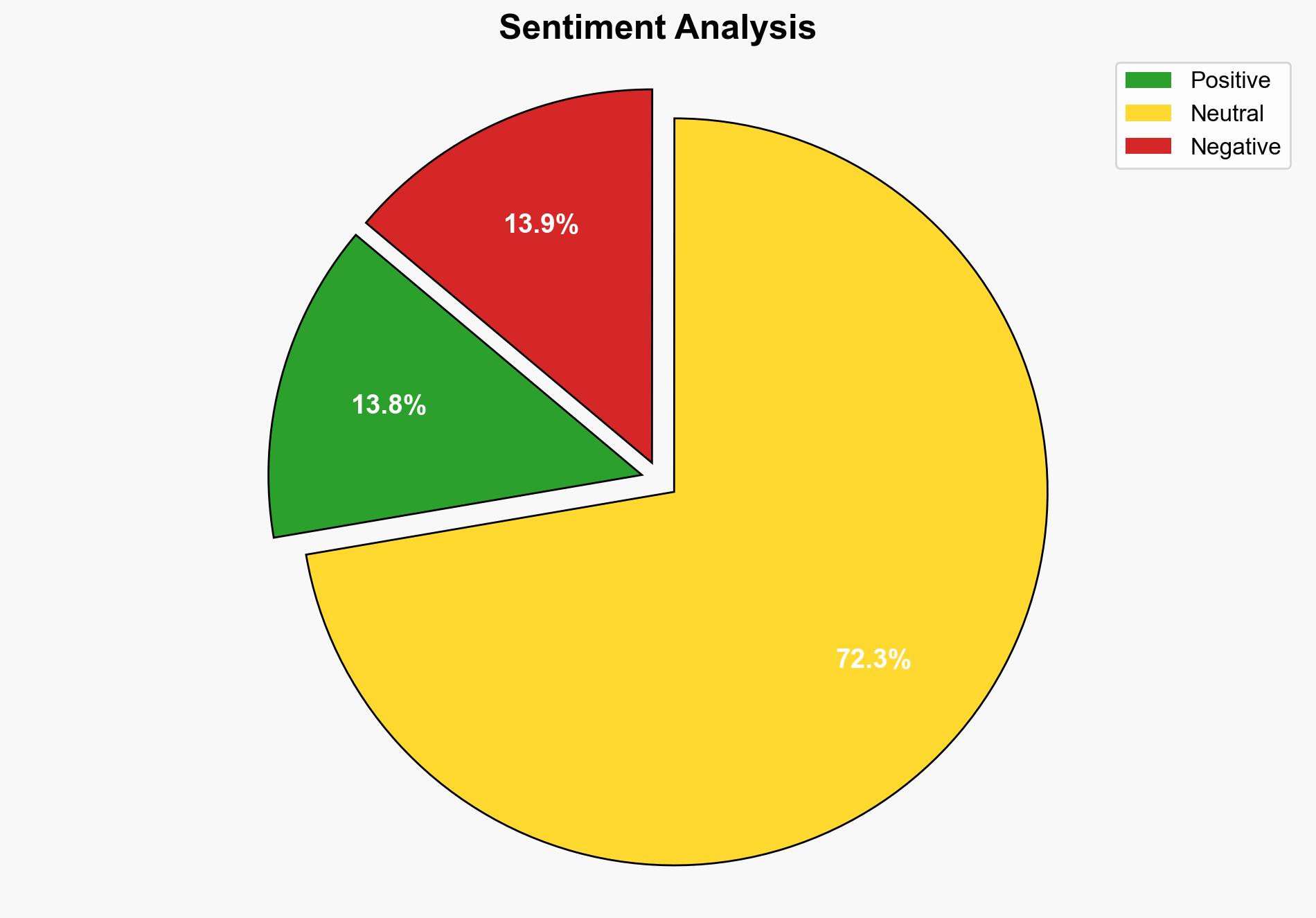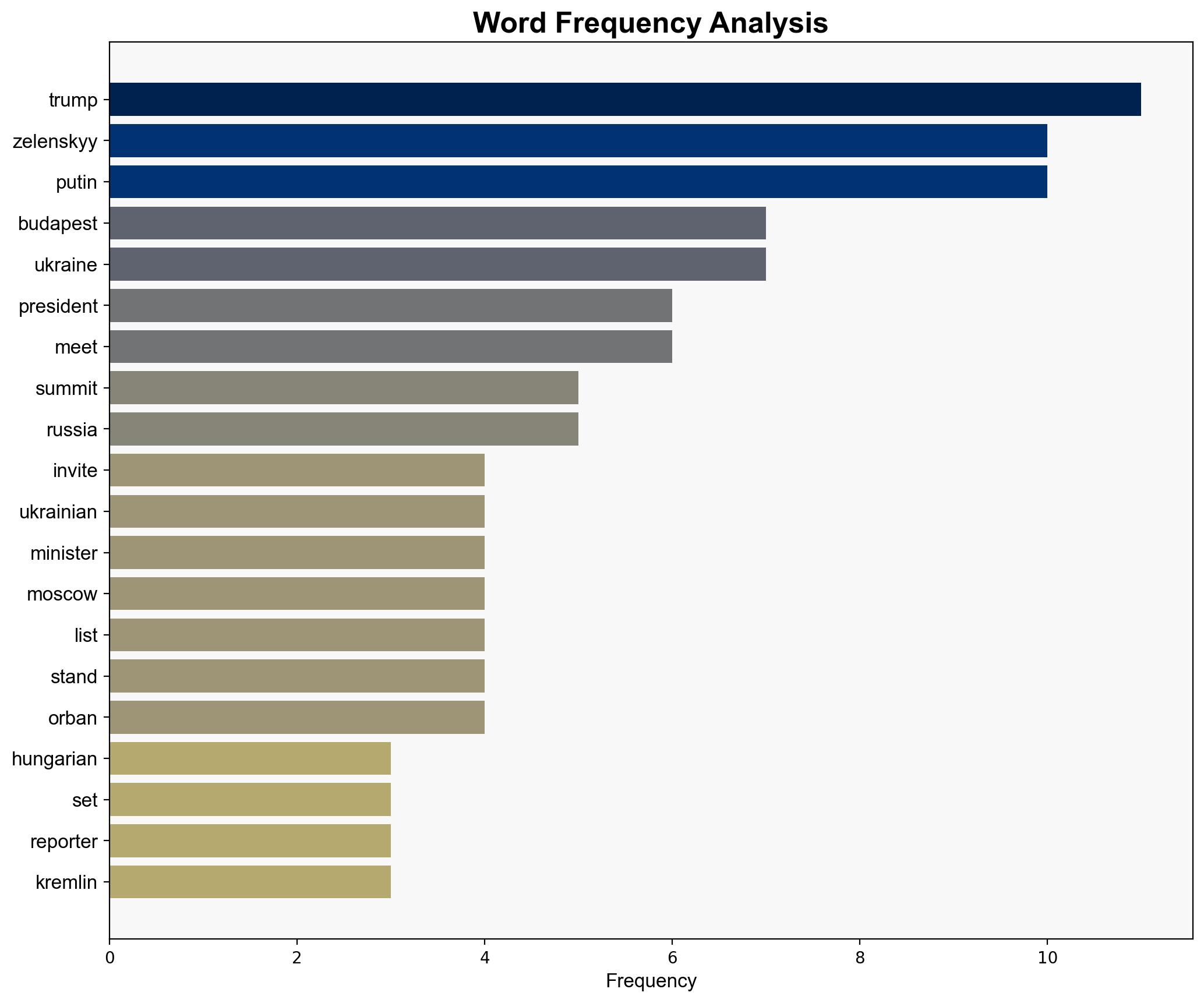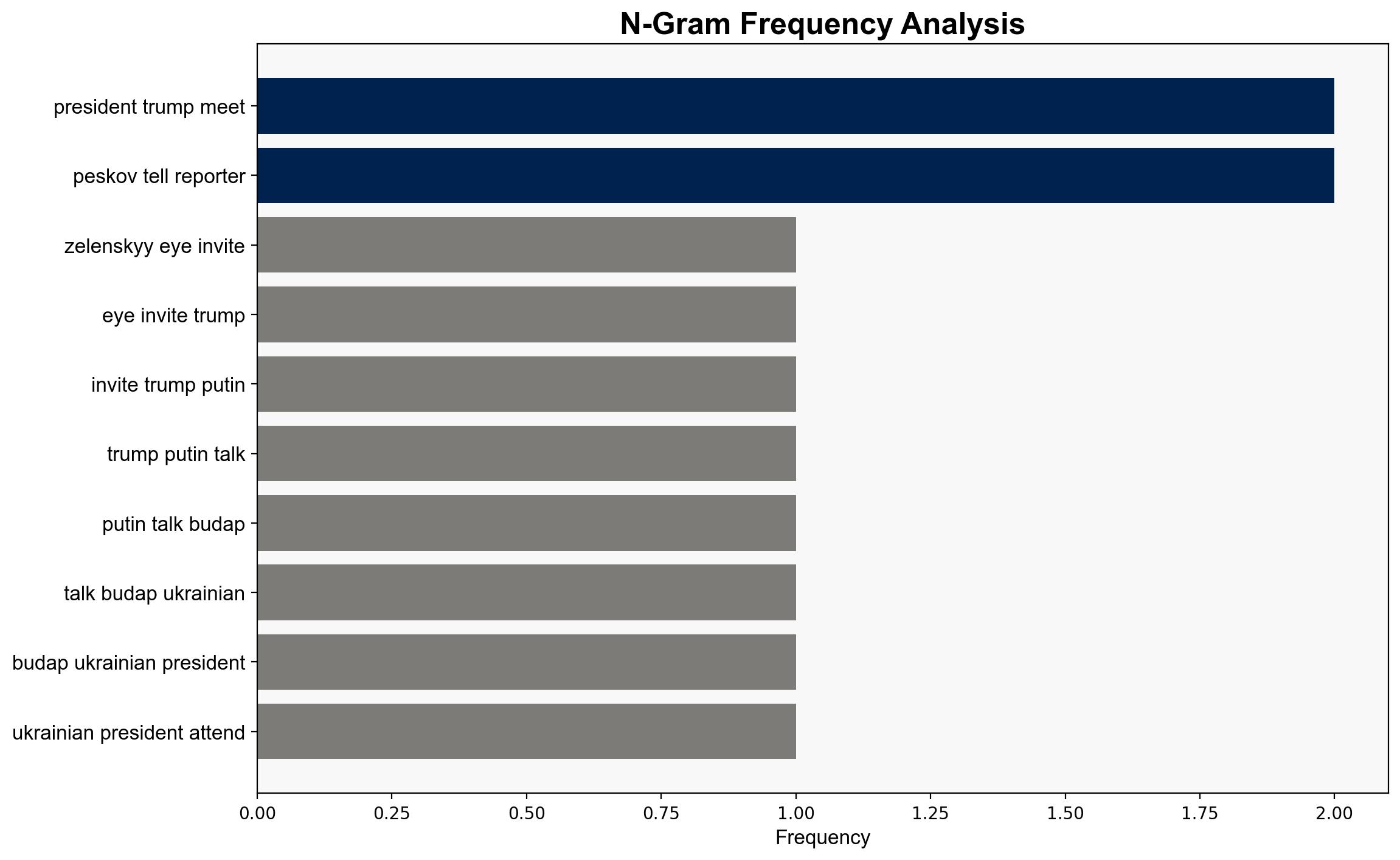Zelenskyy eyes invite to Trump-Putin talks in Budapest – Al Jazeera English
Published on: 2025-10-20
Intelligence Report: Zelenskyy eyes invite to Trump-Putin talks in Budapest – Al Jazeera English
1. BLUF (Bottom Line Up Front)
The most supported hypothesis is that the proposed talks in Budapest are primarily a strategic maneuver by Donald Trump to assert influence in the ongoing Ukraine conflict, leveraging his relationships with both Vladimir Putin and Viktor Orban. Confidence in this hypothesis is moderate due to the complexity of geopolitical dynamics and potential hidden agendas. Recommended action includes monitoring the situation closely, particularly the responses from European Union leaders and NATO, to anticipate shifts in diplomatic strategies.
2. Competing Hypotheses
Hypothesis 1: The Budapest talks are a genuine attempt by Trump to mediate peace between Ukraine and Russia, with Zelenskyy’s participation aimed at ensuring Ukrainian interests are represented.
Hypothesis 2: The talks are a strategic move by Trump to reassert his influence in international politics, using the Ukraine conflict as a platform, with Zelenskyy’s involvement being more symbolic than substantive.
Using ACH 2.0, Hypothesis 2 is better supported. Evidence includes Trump’s history of seeking high-profile diplomatic engagements and the geopolitical significance of involving Orban, who has close ties with Putin, potentially sidelining Zelenskyy’s influence.
3. Key Assumptions and Red Flags
Assumptions include the belief that Trump can effectively mediate between Ukraine and Russia and that Orban’s involvement will not bias the talks. Red flags include Orban’s warm relations with Moscow and Hungary’s antagonistic stance toward Kyiv, which may undermine the neutrality of the talks. The lack of clear commitments from Putin and the potential for the talks to be used as a platform for propaganda are also concerning.
4. Implications and Strategic Risks
The talks could lead to a shift in the balance of power in Eastern Europe, potentially weakening EU and NATO cohesion if perceived as bypassing their diplomatic efforts. There is a risk of escalating tensions if the talks fail or are perceived as biased. Economically, prolonged conflict could strain EU resources, while cyber threats may increase as actors seek to influence outcomes. Geopolitically, the talks could set a precedent for future negotiations involving non-traditional mediators.
5. Recommendations and Outlook
- Monitor EU and NATO responses to the talks to gauge potential shifts in alliances.
- Engage in backchannel communications with key stakeholders to ensure balanced representation of interests.
- Prepare for potential cyber threats by enhancing cybersecurity measures in critical sectors.
- Scenario Projections:
- Best Case: Talks lead to a ceasefire and a framework for peace negotiations.
- Worst Case: Talks collapse, leading to increased hostilities and diplomatic rifts.
- Most Likely: Talks result in minor concessions but fail to achieve significant progress.
6. Key Individuals and Entities
Volodymyr Zelenskyy, Donald Trump, Vladimir Putin, Viktor Orban, Dmitry Peskov, Kaja Kallas, Kestutis Budry.
7. Thematic Tags
national security threats, geopolitical strategy, diplomatic negotiations, Eastern Europe





